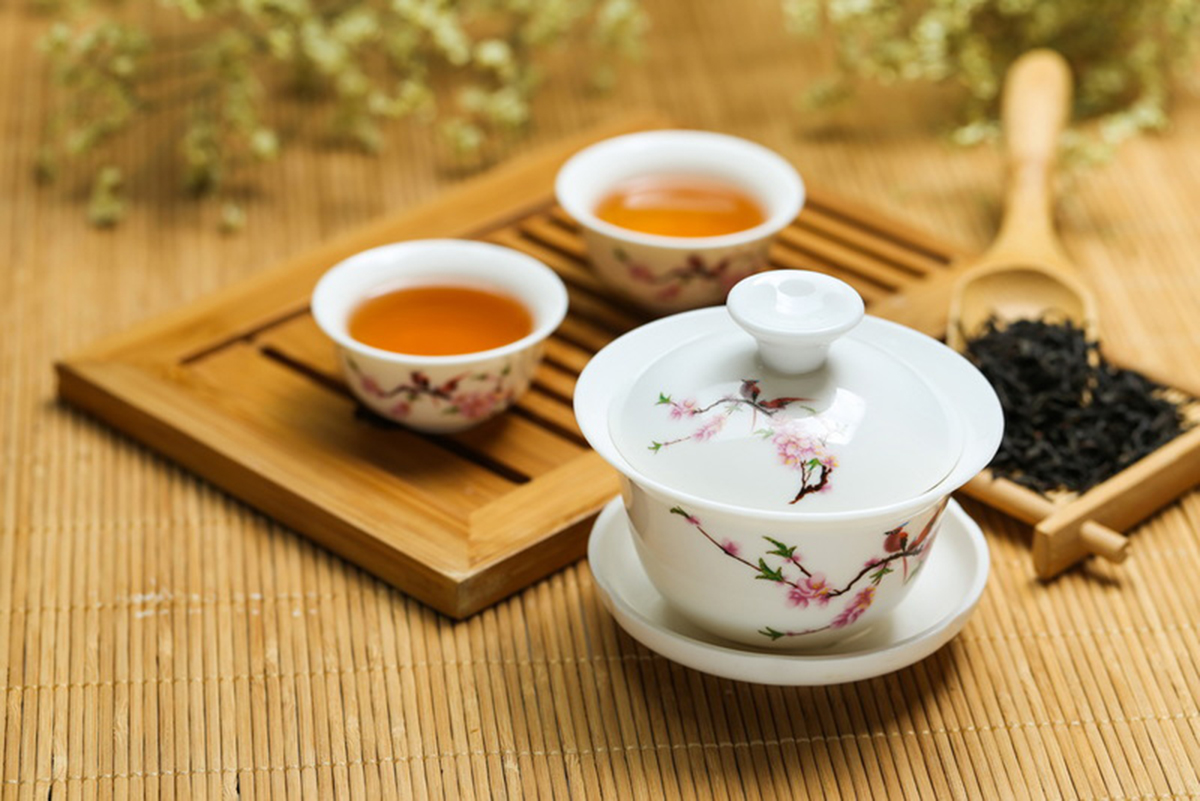Anxiety is the most common mental health issue in America, affecting more than 18 percent of people each year in the US alone. More than 30 percent of the US population is at risk of developing a vitamin deficiency at each given moment, as well. Experts consider it possible that vitamin and mineral deficiencies can contribute to the development of anxiety disorders.

1. Gamma-aminobutyric acid
Gamma-aminobutyric acid (GABA) is an amino acid and a neurotransmitter crucial for serotonin production. Serotonin is a powerful “feel-good” neurotransmitter, and this is why GABA plays an important role in relaxation and mood regulation. People use various vitamins and minerals that improve their anxiety by affecting the levels of GABA in the brain, but gamma-amminobutyric acid can also be used through different supplements to directly tackle anxiety symptoms.
2. Omega-3 fatty acids
Fatty acids represent important building blocks inside the nervous system and they’re essential for the proper functioning of the brain. They’re often said to be beneficial in the fight against depression, which frequently "pairs up" with anxiety. You can use omega-3 capsules, or include more fish like mackerel, tuna, trout, or herring into your diet.
3. B vitamins
Vitamins from the vitamin B family are important for the proper functioning of the nervous system. They help alleviate two vital anxiety symptoms – they improve your mood and stress management — as well as boosting concentration, cognition, and overall energy. Many people with anxiety disorders supplement their diet with vitamins B on regular basis.
While you can purchase B-complex from many manufacturers, it’s still important to incorporate foods that are rich in major B vitamins into your diet. Foods such as shrimp, tuna, salmon, eggs, cheese, yogurt, grass-fed lamb and beef, and green leafy vegetables are great sources of various B vitamins.
4. Vitamin C
A lack of vitamin C (also known as ascorbic acid) has been found to play an important part in stress, anxiety, and depression. According to research, oxidative stress that emerges from a vitamin C deficiency may also trigger many neuropsychological disorders, and anxiety disorders are often part of the diagnostic picture in this case.
5. Vitamin D
This vitamin is crucial for the proper absorption of all other vitamins. If you’re deficient in vitamin D, you might be deficient in other important nutrients as well, which could worsen your anxiety symptoms.
Our skin can make immense amounts of vitamin D when it’s exposed to sunshine. The body is “programed” to get enough vitamin D by producing it when the sun is high in the sky. It’s no wonder that most people feel better when the weather is nice compared to those gloomy winter months! If you take a vitamin D supplement, you usually won't need more than 600 to 800 IU per day.
6. Vitamin E
Our bodies use vitamin E in abundant amounts when they get stressed out and anxious. Supplementing with this important antioxidant may reduce anxiety symptoms and the dose is around 400 international units (IU) per day.
7. Probiotics
Recent research has found that probiotics are not only beneficial for your gut health, but also for your mental health. They may, in other words, be "psychobiotics" too. Scientists think that if your gut is happy, this positive gut-brain connection can affect your mood, and ease depression and anxiety.
8. L-lysine
L-lysine is an essential amino acid that is obtained from wheat-based diet. It reduces chronic anxiety, according to studies and people who regularly supplement their diet with this amino acid. Research has shown that combination of L-lysine and L-arginine brings hormonal stress responses back to normal.
Lysine-fortified wheat significantly reduced anxiety and stress in poor Syrian communities consuming wheat as a staple food, but more in men than women.
9. L-theanine
Tea is the most commonly consumed beverage after water. Besides flavonoids, it also comes with a unique amino acid called L-theanine. For a long time, the amino acid L-theanine, also called N-ethyl-l-glutamine, has been known as a relaxing agent. It has the ability to reduce stress and improve attention. A recent study actually revealed that tea has great anti-anxiety properties in rats.
L-theanine is present in various teas, such as green and black tea, as well as bay bolete mushrooms.
The bottom line
Although dietary supplements can be a useful aid to our health, it’s important to discuss them with your physician. When adding new items to your diet, closely monitor the effects they have on you and report any unusual symptoms to your doctor.
- Photo courtesy of SteadyHealth
- www.health.harvard.edu/blog/omega-3-fatty-acids-for-mood-disorders-2018080314414
- www.ncbi.nlm.nih.gov/pubmed/17510493
- www.ncbi.nlm.nih.gov/pmc/articles/PMC420386/
- www.ncbi.nlm.nih.gov/pubmed/10378953
- www.ncbi.nlm.nih.gov/pubmed/26353411
- www.ncbi.nlm.nih.gov/pmc/articles/PMC3512361/
- www.ijbcp.com/index.php/ijbcp/article/view/2488
- www.ncbi.nlm.nih.gov/pubmed/18296328


Your thoughts on this